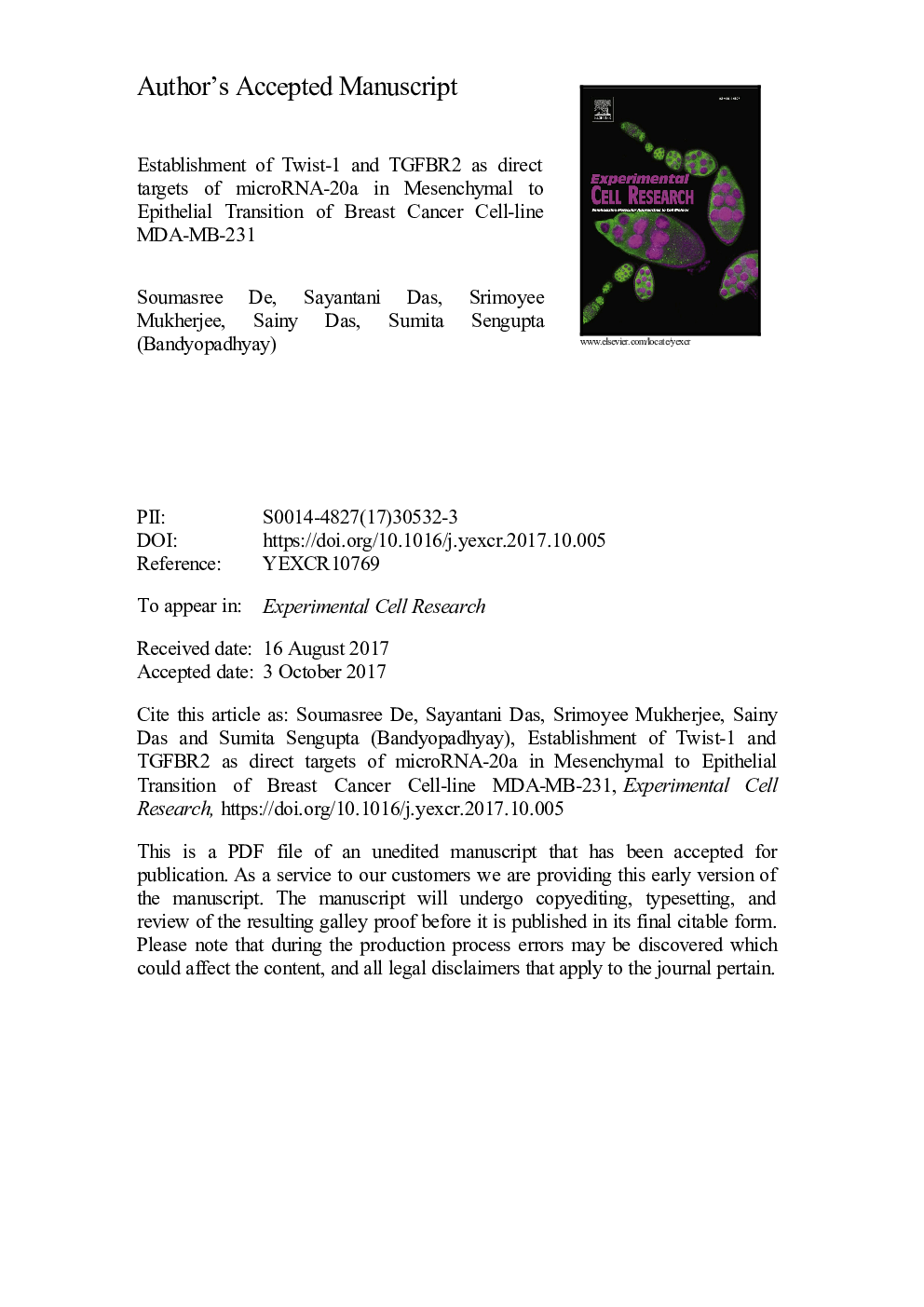| Article ID | Journal | Published Year | Pages | File Type |
|---|---|---|---|---|
| 8451970 | Experimental Cell Research | 2017 | 34 Pages |
Abstract
Messenchymal to epithelial transition (MET) is a significant physiological phenomenon involved in embryogenesis and cancer. This study aims at investigating the mechanism of microRNA-20a (miR-20a) mediated regulation of mesenchymal to epithelial transition and identification of its direct target genes in breast cancer cell-line, MDA-MB-231. Reduced migratory and invasive property, altered cellular morphology along with reduced capability for attachment to basement membrane was acquired by over-expression of miR-20a in invasive MDA-MB-231 cell-line initially expressing low level of this micro-RNA, indicating direct correlation between abundance of miR-20a and metastatic property. The switch from mesenchymal to epithelial cells mediated by miR-20a involved post-transcriptional down-regulation of twist1, which in turn controls downstream epithelial markers like E-cadherin, claudin and mesenchymal markers like N-cadherin, fibronectin, the crucial players of mesenchymal to epithelial transition (MET). Furthermore, another key component, TGF-β and one of its receptors (TGFBR2) were found to be down-regulated by miR-20a. Additionally, reporter assay established that post-transcriptional down-regulation of TGFBR2 occurred through direct binding of miR-20a to its 3â²UTR, thus abrogating the TGF-β signaling pathway resulting in inhibition of MET. Delineating the underlying molecular mechanism of miR-20a-mediated MET and defining the target genes will help us to introduce a miRNA-mediated effective therapeutic strategy against breast cancer.
Keywords
Related Topics
Life Sciences
Biochemistry, Genetics and Molecular Biology
Cancer Research
Authors
Soumasree De, Sayantani Das, Srimoyee Mukherjee, Sainy Das, Sumita Sengupta (Bandyopadhyay),
